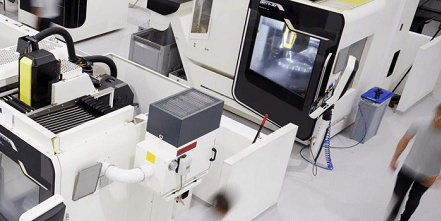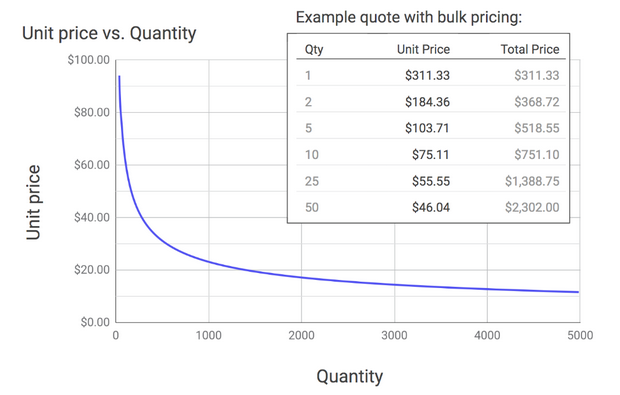
Ordering prototypes and sourcing custom parts can be a time consuming, expensive, and stressful process for engineers who don’t take the time to conduct the required research. Despite the care and expertise that goes into a 3D design, there’s no telling how many issues could come to light after the part is manufactured at a different facility. Not only would this result in a useless part, but also hours wasted trying to find and solve the problem. With Design for Manufacturing (DfM) feedback from 3D printing service 3D Hubs, engineers can put their trust in the CNC machining process.
If engineers want to test the viability of their 3D designs, they can easily access the DfM tool on the 3D Hubs platform. In addition to checking the manufacturability of their parts, they can get an instant quote for costs. Here are some of the issues DfM feedback can highlight designs prior to the CNC machining process.
Sharp internal corners could present a problem pretty quickly. To keep the process as cost-effective as possible, these sharp internal corners will have to be machined with a 2mm radius because of the cutter diameter. Otherwise, a more expensive process will need to be used. CNC machining services can often use more expensive processes, but this preference should be noted in the design before production begins.
While a 3D printing service is great for prototyping small quantities of complex shapes, CNC is often the better choice for mechanical pieces. Unfortunately, CNC tends to have certain limitations due to the 3-axis mill, and a design with a material that is difficult to remove could wind up costing extra. For example, undercuts simply cannot be made with a 3-axis mill, and will require a 5-axis mill or other specific tools in order to complete the design. While this is doable, these special requirements will cause the bill to rise. With DfM feedback, engineers can update designs with the ‘hard to remove volume’ data in mind.

Standard wall thickness is essential to design integrity and will change depending upon the material used. 1.5mm is required for plastic, though designs can get a little thinner at 0.8mm for metals. As for aspect ratios of height to width, they should be kept under 4. Designers should resist the urge to go too thin, however, since thin walls can break during the production process, or even break during use. If thin walls are essential to the design, other CNC machining services may be used, at the cost of a higher price tag.
Creating custom parts doesn’t need to cost exorbitant amounts of time and money, especially if the design can be evaluated before anything is produced. Instant design feedback can highlight issues and make 3D models better than ever. For engineers looking for CNC service or a 3D printing service, 3D Hubs has plenty of design tips and inspiration in addition to their many services. Engineers and businesses can test designs, get instant quotes, explore material options and more on their website.

